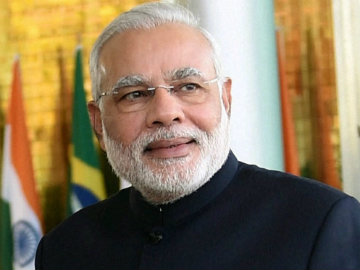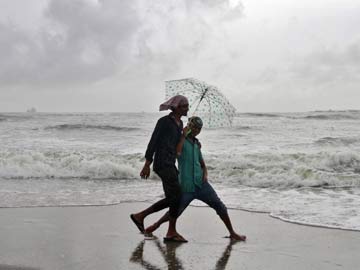GOOD NIGHT ALL
“This life is what you make it. No matter what, you're going to mess up sometimes, it's a universal truth. But the good part is you get to decide how you're going to mess it up. Girls will be your friends - they'll act like it anyway. But just remember, some come, some go. The ones that stay with you through everything - they're your true best friends. Don't let go of them. Also remember, sisters make the best friends in the world. As for lovers, well, they'll come and go too.”
Sunday, August 31, 2014
Chigumbura, Utseya stun Australia in tri-series
READ MORE:Zimbabwe vs Australia 2014|Zimbabwe tri-series 2014|Phillip Hughes|Nathan Lyon|Mitchell Johnson

© Getty Images
Harare: Zimbabwe beat Australia for the first time in 31 years on Sunday as captain EltonChigumbura's 52 not out led his team to a famous three-wicket win in the ODI triangular series.
Click here for Full Scorecard and Commentary
Opposite number Michael Clarke also made an unbeaten half-century for Australia but re-injured his hamstring in only his country's second loss ever to the southern African team and said he would leave the tournament to return home for treatment.
Opposite number Michael Clarke also made an unbeaten half-century for Australia but re-injured his hamstring in only his country's second loss ever to the southern African team and said he would leave the tournament to return home for treatment.
Chigumbura carried the tournament host to 211 for 7, overhauling Australia's below-par 209 for 9 on a tough batting strip at Harare Sports Club. It was Zimbabwe's first win over the currently top-ranked Australians since they met in ODIs for the first time at the 1983 World Cup. Chigumbura had valuable help from Prosper Utseya, who was 30 not out in the match-winning partnership at the end.
The tense victory — sealed with two overs to spare but after Zimbabwe were struggling at 156 for 7 — sparked rare celebrations and a lap of honor for a team that recently lost two ODIs in a row to draw a series with lowly Afghanistan and had been beaten in its previous seven one-dayers at home.
"I had to be there until the end," Chigumbura said. "The most important thing was to stay calm. The guys worked very hard for this and the supporters were behind us throughout."
Utseya, whose 30 came off just 28 balls to help carry Zimbabwe home, sealed the win by launching a six over mid-wicket. Zimbabwe's win was built on their earlier spin bowling effort as the Australian batsmen struggled on a slow, turning pitch to only just get past 200.
"Definitely not enough runs," Clarke said, "but credit to Zimbabwe, they bowled well and batted well. We lost the match during our innings, and Zimbabwe showed us how to play spin."
Clarke hit his half-century in his first international in six months and after passing a fitness test to play, but retired hurt in the 43rd over just as Australia appeared to be slowly recovering from a poor start.
The Aussies had been 97 for 5 after Zimbabwe's spinners struck early and quickly, but Clarke built a 50-run stand with Brad Haddin (49) before he made the decision to limp off and limit any damage to his hamstring.
Haddin was supported by Ben Cutting (26) down the order but Australia ultimately didn't have enough runs and offspinner Nathan Lyon's 4 for 44 couldn't save Australia.Soon batteries to run on sugar
Aug 31, 2014, 02.03 PM IST
In a breakthrough to develop long-lasting batteries for smartphones and other gadgets, scientists have successfully created a sugar biobattery that completely converts the chemical energy in sugar substrates into electricity.
RELATED
NEW YORK: In a breakthrough to develop long-lasting batteries for smartphones and other gadgets, scientists have successfully created a sugar biobattery that completely converts the chemical energy in sugar substrates into electricity.
This biobattery can achieve an energy-storage density of about 596 ampere-hours (A/h) per kg - an order of magnitude higher than the 42 A-h/kg energy density of a typical lithium-ion battery used in various gadgets.
"A sugar biobattery with such a high-energy density could last at least 10 times longer than existing lithium-ion batteries of the same weight," said Y H Percival Zhang, an associate professor of biological systems engineering at Virginia Polytechnic Institute and State University, popularly known as Virginia Tech.
The biobattery is a type of enzymatic fuel cell (EFC) - an electrobiochemical device that converts chemical energy from fuels such as starch and glycogen into electricity.
"We are first to demonstrate the complete oxidation of the biobattery's sugar so we achieve a near-theoretical energy conversion yield that no one else has reported," Zhang said.
The sugar biobattery is also less costly than the lithium-ion battery and environmentally friendly,
This biobattery can achieve an energy-storage density of about 596 ampere-hours (A/h) per kg - an order of magnitude higher than the 42 A-h/kg energy density of a typical lithium-ion battery used in various gadgets.
"A sugar biobattery with such a high-energy density could last at least 10 times longer than existing lithium-ion batteries of the same weight," said Y H Percival Zhang, an associate professor of biological systems engineering at Virginia Polytechnic Institute and State University, popularly known as Virginia Tech.
The biobattery is a type of enzymatic fuel cell (EFC) - an electrobiochemical device that converts chemical energy from fuels such as starch and glycogen into electricity.
"We are first to demonstrate the complete oxidation of the biobattery's sugar so we achieve a near-theoretical energy conversion yield that no one else has reported," Zhang said.
The sugar biobattery is also less costly than the lithium-ion battery and environmentally friendly,
Why we need a little sunshine?
Rampant among Indians, vitamin D deficiency has a simple solution
Happy to staindoors in this torrid heat? Well, here's a good reason to step out: your body needs the daily dose of vitamin D that comes from exposure to the sun. Seven out of every 10 Indians are estimated to be at risk from D-deficiency — a curious statistic for a tropical country that gets plenty of sun through the year. GO FOR SOME SKIN SHOW Doctors say one reason for this is our darker skin tone. The vitamin D present in the skin gets activated when the sun's rays fall on us. The more the melanin, the less the production of vitamin D by the skin. Other factors are excessive use of sunscreen and increasingly indoor lifestyles.
"So many people now work the graveyard shift; people are relying on closed modes of transport like cabs, cars and the metro... all these reduce exposure to the sun," says Dr Yuvraj Kumar, head of ortho paedics at Asian Institute of Medical Sciences, Faridabad. The vegetarian diet, staple of many Indians, is also a con tributing factor, he adds. Meats, eggs and fish oils are rich vitamin D sources.
SLOWDOWN FACTOR: Symptoms of D-deficiency include fatigue, general pain in weight-bearing areas, lack of sleep and loss of ap petite. KK Singhal, 64, had been experiencing these problems after retirement. "I used to go for a walk only in the evening and wasn't getting enough sun exposure.
My doctor also told me that after 50 the risk of deficiency is higher as the skin does not make as much vitamin D and the kidneys (crucial for metabolizing the for metabolizing the vitamin) also slow down," says the Delhi-based senior citizen. Singhal has been tak ing vitamin supplements for three months now and re ports better health.
FACTS OF D MATTER: The vitamin helps in ab sorption of calcium and phosphorus, both crucial for strong bones and teeth. The earliest evidence of this was recorded some 300 years ago by physicians treating rickets in children.
Recent studies have also linked it to a host of other problems such as heart dis ease, diabetes and infertility. A 30-year-long study that monitored 10,000 Finnish chil dren from birth to adulthood found that those who had been given vitamin D supplements during in fancy had a nearly 90% lower risk of developing type 1 diabetes. And a 2008 study of 50,000 men by the nutrition department of Harvard School of Public Health found that the risk of heart attack doubled in men with D-deficiency.
However, doc tors remain cau tious, maintaining that the linkage be tween vitamin D and bone health is the only one that's well estab lished. "What we know is that it helps in building strong bones muscles and having and muscles and having healthy teeth and nails," says Dr Rajeev Thukral, senior orthopaedic consultant at Delhi's Max Super Speciality Hospital.RX FOR D You can find out your vitamin D levels by doing a blood test that costs around Rs 3,000. A healthy Indian adult needs 400 IU of the vitamin daily, according to the Indian Council of Medical Research. This can be achieved with a 30-minute walk in the morning.
Happy to staindoors in this torrid heat? Well, here's a good reason to step out: your body needs the daily dose of vitamin D that comes from exposure to the sun. Seven out of every 10 Indians are estimated to be at risk from D-deficiency — a curious statistic for a tropical country that gets plenty of sun through the year. GO FOR SOME SKIN SHOW Doctors say one reason for this is our darker skin tone. The vitamin D present in the skin gets activated when the sun's rays fall on us. The more the melanin, the less the production of vitamin D by the skin. Other factors are excessive use of sunscreen and increasingly indoor lifestyles.
"So many people now work the graveyard shift; people are relying on closed modes of transport like cabs, cars and the metro... all these reduce exposure to the sun," says Dr Yuvraj Kumar, head of ortho paedics at Asian Institute of Medical Sciences, Faridabad. The vegetarian diet, staple of many Indians, is also a con tributing factor, he adds. Meats, eggs and fish oils are rich vitamin D sources.
SLOWDOWN FACTOR: Symptoms of D-deficiency include fatigue, general pain in weight-bearing areas, lack of sleep and loss of ap petite. KK Singhal, 64, had been experiencing these problems after retirement. "I used to go for a walk only in the evening and wasn't getting enough sun exposure.
My doctor also told me that after 50 the risk of deficiency is higher as the skin does not make as much vitamin D and the kidneys (crucial for metabolizing the for metabolizing the vitamin) also slow down," says the Delhi-based senior citizen. Singhal has been tak ing vitamin supplements for three months now and re ports better health.
FACTS OF D MATTER: The vitamin helps in ab sorption of calcium and phosphorus, both crucial for strong bones and teeth. The earliest evidence of this was recorded some 300 years ago by physicians treating rickets in children.
Recent studies have also linked it to a host of other problems such as heart dis ease, diabetes and infertility. A 30-year-long study that monitored 10,000 Finnish chil dren from birth to adulthood found that those who had been given vitamin D supplements during in fancy had a nearly 90% lower risk of developing type 1 diabetes. And a 2008 study of 50,000 men by the nutrition department of Harvard School of Public Health found that the risk of heart attack doubled in men with D-deficiency.
However, doc tors remain cau tious, maintaining that the linkage be tween vitamin D and bone health is the only one that's well estab lished. "What we know is that it helps in building strong bones muscles and having and muscles and having healthy teeth and nails," says Dr Rajeev Thukral, senior orthopaedic consultant at Delhi's Max Super Speciality Hospital.RX FOR D You can find out your vitamin D levels by doing a blood test that costs around Rs 3,000. A healthy Indian adult needs 400 IU of the vitamin daily, according to the Indian Council of Medical Research. This can be achieved with a 30-minute walk in the morning.
When cousins fall in love...

When cousins fall in love...(Thinkstock Photos/Getty ImageS)
What happens when romance enters the picture between two people, who are perceived as siblings by society at large. TOI explores...
Among the many unusual relationships being explored in an ongoing television show, is one of cousins being in love. Although some communities do allow marriages between cousins, it is difficult for most to imagine a romantic relationship between first cousins as they are considered siblings. However, there have been cases where romantic feelings creep in inspite of being aware of the complications. "A short-lived relationship may develop between two cousins, especially when one is on the rebound from another relationship. This happens because it is convenient and closer home," says counsellor Shyama Goswami.
"A relationship like that is just infatuation and does not usually have a definite end, unless the family is open enough to accept it. When a couple realises that their relationship is taboo, it might make them feel guilty. One must ideally step out of this relationship before other siblings or parents get to know of it; the embarrassment that follows may cause the family to fall apart," adds Goswami.
When awkwardness starts creeping in during a family gathering, this is when the couple should realise that they were better off as cousins. "Talk about it, rather than avoid the issue or behave abnormally, as this might spoil many relationships. End it gracefully. Discuss your childhood memories and try to make light of the situation, weigh them against the pleasures of a temporary relationship and you'll find the answer. Do not leave things unsaid as you'll be bumping into each other often; making a clear exit is advisable," says Goswami.
Nonetheless, some go ahead regardless of backlash or implications. Niharika Sreshtha, a PR professional recalls the time one of her aunts got married to her first cousin. "For us Bengalis, getting romantically involved with a cousin is taboo. Tuli aunty fell in love with her first cousin, and soon their families got to know of it. After several confrontations, not only did the families separate, it also led to the couple being ostracised by the community. But they were adamant and got married for which they became a part of a reformist community," says Niharika
.
8 Reasons Why You SHOULD Own A Dog!
Shares
They are cuddly, cutesy and furry but that's not about it. More than just friends, dogs can be your medical guardians too. Dog ownership can assure you a healthy living sans the dreadful pills. And yes, they take on the role of teachers too. We give you 8 reasons why owning a dog can be your best bet ever!
1. Cancer Sniffers

Source: Giphy
Your dog can be your ultimate saviour! Apparently, dogs have the unique ability to smell cancer in human bodies. Researchers from Schillerhoehe Hospital in Germany have found that sniffer dogs can detect lung cancer in its early stage. According to case studies, owners whose dogs sniffed or licked a mole/lump on their body or tried to bite the lesion off, discovered after medical checkup that it was cancerous!
2. Heart Healers

Source: Giphy
If you have an ailing elderly person at your residence without adequate company, a pet is an apt solution. Dr. Stephen Sinatra, cardiologist and nutritionist in his book Heart Sense for Women explains that grief and loneliness can be debilitatingfor heart patients. According to his research, "heart patients who own pets have a higher survival rate than the ones who don't". Pet owners over age 65 make 30 per cent fewer visits to their doctors than those without pets. No medical bills and absolutely free of side-effects!
3. Psychological Guardians

Source: Giphy
Pets offer you comfort without asking for anything in return. Connecticut psychologist Herbert Nieburg, author of Pet Loss: A Thoughtful Guide for Adults and Children confirms that, "pet ownership is psychologically beneficial".
4. Anxiety Killers

Source: Tumblr
Do you suffer from frequent panic attacks? It is time to bring home a pet! Pets not only help lower blood pressure but also reduce anxiety levels. Swallowing anti-depressant pills won't help; own a dog to keep your cholesterol and triglyceride levels at check!
5. Allergy Terminators, Immunity Boosters

Source: Giphy
Did you know infants are less likely to be allergy-prone around dogs? According to medical research and studies, with dogs at home, infants are less susceptible to eczema- a common allergy skin condition that causes red patches and itching. On the contrary, kids develop a better and stronger immune system! "Dogs are dirty animals, and this suggests that babies who have greater exposure to dirt and allergens have a stronger immune system," explains, researcher James E. Gern, MD, a pediatrician at the University of Wisconsin-Madison, in the Journal of Allergy and Clinical Immunology.
6. Memory Keepers

Source: Giphy
Alzheimer's patients suffer fewer anxiety outbursts if they keep dogs for pets. Moreover, there is evidence that AIDS patients show minimum signs of depression if they own a pet!
7. Autism Fighters

Source: Giphy
Children with learning difficulties are advised by therapists to overcome the adversities of the disorder by communicating with dogs, for they rely on non-verbal cues. Exercising or even playing with dogs can calm nerves and make children have a better cognitive function. They are alert, agile and more responsive!
8. Movers And Shakers

Source: Giphy
Based on a report by Science Daily, "Dogs help people with rheumatoid arthritis to move more often and help them get their mind off of their condition. Dogs are great motivators to get moving and they sure are good at distracting us from things!"
With them you laugh, learn and love. Bring home a pet and discover the joys for yourself!
1. Cancer Sniffers

Source: Giphy
Your dog can be your ultimate saviour! Apparently, dogs have the unique ability to smell cancer in human bodies. Researchers from Schillerhoehe Hospital in Germany have found that sniffer dogs can detect lung cancer in its early stage. According to case studies, owners whose dogs sniffed or licked a mole/lump on their body or tried to bite the lesion off, discovered after medical checkup that it was cancerous!
2. Heart Healers

Source: Giphy
If you have an ailing elderly person at your residence without adequate company, a pet is an apt solution. Dr. Stephen Sinatra, cardiologist and nutritionist in his book Heart Sense for Women explains that grief and loneliness can be debilitatingfor heart patients. According to his research, "heart patients who own pets have a higher survival rate than the ones who don't". Pet owners over age 65 make 30 per cent fewer visits to their doctors than those without pets. No medical bills and absolutely free of side-effects!
3. Psychological Guardians

Source: Giphy
Pets offer you comfort without asking for anything in return. Connecticut psychologist Herbert Nieburg, author of Pet Loss: A Thoughtful Guide for Adults and Children confirms that, "pet ownership is psychologically beneficial".
4. Anxiety Killers

Source: Tumblr
Do you suffer from frequent panic attacks? It is time to bring home a pet! Pets not only help lower blood pressure but also reduce anxiety levels. Swallowing anti-depressant pills won't help; own a dog to keep your cholesterol and triglyceride levels at check!
5. Allergy Terminators, Immunity Boosters

Source: Giphy
Did you know infants are less likely to be allergy-prone around dogs? According to medical research and studies, with dogs at home, infants are less susceptible to eczema- a common allergy skin condition that causes red patches and itching. On the contrary, kids develop a better and stronger immune system! "Dogs are dirty animals, and this suggests that babies who have greater exposure to dirt and allergens have a stronger immune system," explains, researcher James E. Gern, MD, a pediatrician at the University of Wisconsin-Madison, in the Journal of Allergy and Clinical Immunology.
6. Memory Keepers

Source: Giphy
Alzheimer's patients suffer fewer anxiety outbursts if they keep dogs for pets. Moreover, there is evidence that AIDS patients show minimum signs of depression if they own a pet!
7. Autism Fighters

Source: Giphy
Children with learning difficulties are advised by therapists to overcome the adversities of the disorder by communicating with dogs, for they rely on non-verbal cues. Exercising or even playing with dogs can calm nerves and make children have a better cognitive function. They are alert, agile and more responsive!
8. Movers And Shakers

Source: Giphy
Based on a report by Science Daily, "Dogs help people with rheumatoid arthritis to move more often and help them get their mind off of their condition. Dogs are great motivators to get moving and they sure are good at distracting us from things!"
With them you laugh, learn and love. Bring home a pet and discover the joys for yourself!
Narendra Modi and Shinzo Abe: A Rare Affinity
All India | Agence France-Presse | Updated: August 30, 2014 11:45 IST
Test Drive Etios Cross – Electric power steering, rear wiper Defogger & More Exciting Features.

The two leaders, both right-wing nationalists elected on a pledge to revive their countries' economies, share an interest in shoring up regional alliances to counter an increasingly assertive China.
Both men are seen as strong leaders who have championed deregulation to kickstart their countries' flagging economies. They also enjoy an unusually warm relationship. (To Tokyo With Love: PM Narendra Modi Tweets in Japanese Ahead of Key Visit)
In Japan, PM Modi, 63, will first meet Mr Abe, 59, privately in the historic city of Kyoto before holding official talks in Tokyo, seeking to capitalise on their close relationship to boost trade between Asia's second and third largest economies. ('Eagerly Waiting for Your Arrival': Japan's Shinzo Abe to Narendra Modi)
It is Mr Modi's first bilateral visit outside South Asia since taking office, signalling the importance of a nation he said offered "immense scope for cooperation".
Mr Modi visited Japan twice when he was Chief Minister of Gujarat state, and met Mr Abe on both occasions.
"Japan's friendship with India is time tested. We are 2 vibrant democracies committed to advancing peace and democracy in the world," Mr Modi tweeted on Thursday in both English and Japanese.
"The common ground of their policies is expected to benefit both the Japanese and Indian economies," said Takehiko Yamamoto, an international politics expert at Waseda University.
Both are also leaders of countries embroiled in territorial disputes with China. The United States, Japan's key ally, is concerned about Beijing's growing economic and military clout, and would welcome a closer relationship between New Delhi and Tokyo, which geographically bookend China.
"The visit by Modi would offer an opportunity for the leaders to confirm a long-term cooperation in their effort to softly contain China," said Mr Yamamoto.
Indian foreign ministry spokesman Syed Akbaruddin said Mr Modi's focus would be to boost Indian exports -- he is reportedly travelling with a large business delegation -- and seek Japanese support in infrastructural developments.
This could include Japanese investment in new high-speed train networks after the new government said the country's dilapidated railways needed an "immediate course correction".
Monsoon Rains 53 Per Cent Below Average in Past Week
Best Stock to Buy in 2014 – 8-10 Best Stocks to Buy per month 8-10% short-term Returns, Try Free

Beachgoers react to the camera while holding an umbrella as it drizzles at the Fort Kochi beach in Kochi on June 6, 2014.
Reuters
Reuters
Rainfall was 31 per cent below average in the previous week, as the progress of the monsoon had stalled after covering half of India.
This year, monsoon arrived five days late on the Southern Kerala coast, and then covered half of India four days later than the usual date of June 15.
Rainfall was 43 percent below average in June, the weakest first month of the season in five years.
Subscribe to:
Posts (Atom)



